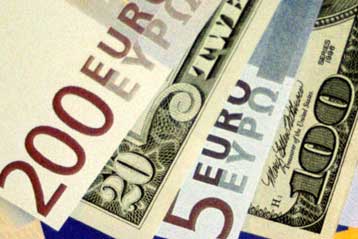
During the financial crisis, the Greek government starts off bonds for 2 billion Euros, on the fatal, according to Greek beliefs, Tuesday the 13th. From them, 900 million Euros are bonds with a term of 11 weeks, another 900 million are bonds for 26 weeks, and the rest for 52 weeks. This is the first loan for 2009 and the Organization for the internal debt management announced that it is ready to set off a second loan for 5 billion Euros by the end of January.
Taking a state loan through bonds is necessary due to the enormous needs of the Greek public sector, which only for the first month of the New Year reached 7 billion Euros. For the first three months of 2009, those needs will be between 12 and 15 billion Euros and for the whole year they will reach 45 billion Euros—in other words, five times more than the annual investment program in the public sector. In order only to pay off interest rates and to reschedule old debts the Greek public sector needs 42 billion Euros.
Financial experts are very skeptical when it comes to the success of the bonds. They note that last week Germany, which is the “wagon” of the European economy, did not manage to attract investors for the 10 year bonds. This was the first time it has happened since the end of WWII. Germany tried to sell bonds for 6 billion Euros but managed to gather only 5,22 billion Euros. The danger for Greece is not only that it gives bonds at the same time as other European countries but at what conditions they are given. Specialists note that the interest, with which Greece works, is higher than the one in Germany.
The start of these bonds is one of the biggest challenges for the economic team of Kostas Karamanlis because on one hand fresh money need to be found fast for the Greek financial system, and on the other – to regain the trust of the investors in the Greek market.